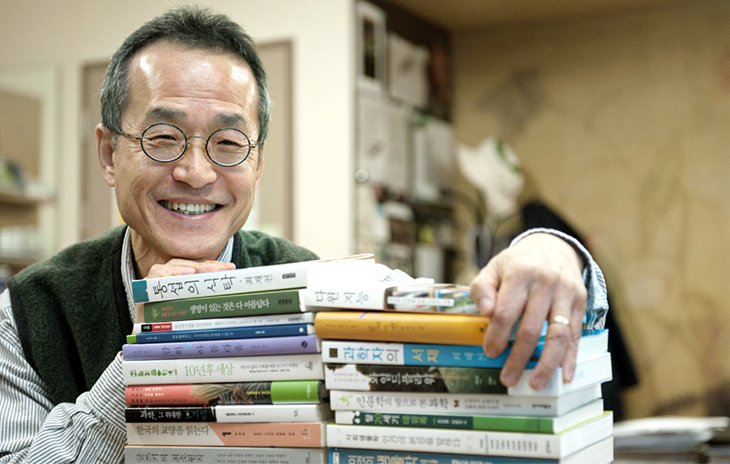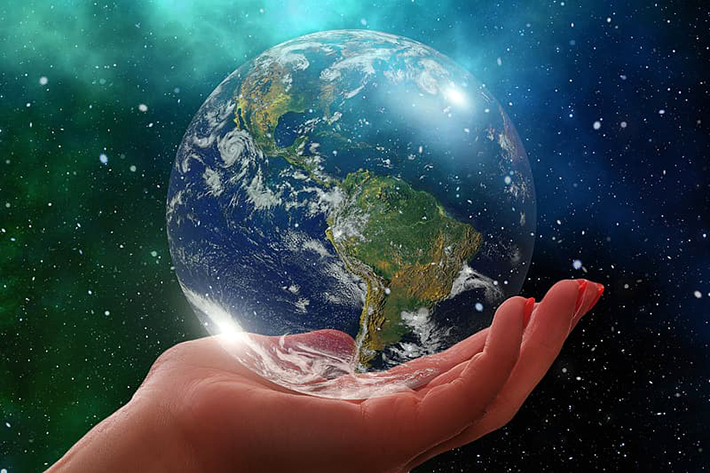Locals in Tuvalu watch as their homes are slowly engulfed by rising sea levels, great fires sweep across Australia, and casualties from draughts, hurricanes, and heatwaves rise incessantly: the world we know is changing before our eyes. These are the direct consequences of the rapid rise of anthropogenic (or 'man made') gas emissions since the Industrial Age which have launched today's CO2 levels to the highest point in 800,000 years. Although there has not yet been a proven cause and effect relationship between COVID-19 and climate change, many experts believe that human involvement in nature is the key cause to the increasing number of outbreaks in the 21st century. With a renewed sense of urgency towards climate change, I decided to seek out an expert's opinion on the matter.
It was then that I came across one of Professor Jae Chun Choe's lectures on youtube about climate change and biodiversity. A tireless advocate for climate change, Professor Jaechun Choe of Ewha Womans University is a Harvard alumnus and the founder of the Biodiversity Foundation with Jane Goodall. He has since spoken at numerous public lectures all over Korea. I sent him an email requesting for an interview, initially not expecting a response. To my jubilation, he responded, and we arranged for a time to meet.

To begin the interview, I asked Professor Choe whether he believed there was a correlation between climate change and COVID 19. Choe looked back at the past coronavirus outbreaks- SARS, MERS, and COVID 19- and linked them to one key origin: bats. As we urbanize into forests and destroy habitats, we have created facilities that are now nearer to bat caves than ever before. "Viruses aren't alive; they don't plan to spread diseases to us. It just smears on," Professor Choe said, smiling. Furthermore, due to global warming, bats are moving into temperate zones where the majority of the human population lives. Prior to the 21st century, infectious events happened every 20-30 years whereas in the 21st century, SARS, MERS, and COVID outbreaks all happened within the last 20 years. This is testimony to the immense harm we are enacting on our planet.However, Professor Choe stressed that COVID 19 is not the biggest existential threat we should be worrying about. "If you are scared about the virus, you should be really scared about climate change. The virus will never be able to make us extinct, but climate change can certainly wipe us out," he said.
Moving on, he discussed the impacts of climate change that we are seeing around the world. "Korea once lost our national identity to Japan. In some ways, it's similar to what's happening to countries like Tuvalu where their land is slowly disappearing due to rising sea levels-- primarily due to the actions of wealthier countries," Professor Choe remarked. Upon further research, I discovered that merely 10 percent of the population (in wealthy countries) are responsible for over half of the greenhouse gas emissions. This heavily impacts developing countries and has forced millions of people to migrate to wealthier countries due to rising sea levels, droughts, and other climate related crises. In fact, the World Bank estimated that 143 million people could be displaced by climate change impacts by 2050.
It is crucial for us to realize, however, that the effects of climate change are not limited to developing countries. Global warming is a crisis with no national or economic boundaries. "During the COVID 19 pandemic, we see that the impact is greater for lower-income individuals. At the same time, we learn that unless everybody is safe, nobody is safe," Professor Choe said.

To mitigate the effects of climate change, we must all change the ways we carry out our daily lives. "Extremely inconvenient truth, slightly inconvenient time" is the phrase Professor Choe uses to describe what we should do in the face of climate change. Many people expect the development of some type of technology that can remove climate change, but the technology simply does not exist. We must "make inconvenient choices in our daily lives" to become the change, noted Choe. Professor Choe walks the seven kilometers to and from Ewha Womans University everyday and carries an expandable shopping bag in his bag at all times. He also mentioned changes such as asking for a "fruit bitten by insects" at the market to cut down on the use of insecticide. If insects have also tasted the fruit, it shows us that the fruit is safe to eat for humans as well. A visually attractive piece of fruit, on the other hand, shows that lots of insecticide has been used on the plant to make it look that way. "When those small efforts accumulate, there will be change," Choe said.
Before closing the interview, I inquired whether he believes attitudes towards the environment have shifted due to COVID 19. Professor Choe replied that recently, he sees the general public talking more about how we should not disturb nature or touch infectious animals-- a message that biologists have been trying to convey for a long time. Yet, he has some reservations about the public's stance. "We are also the animal that forgets. When this thing is over, we'll probably go back to our previous ways of life. But perhaps it will be different this time and the virus is now teaching us something we haven't been able to teach the general public," he observed.
If we turn off the TV, the problems on the other side of the planet we see on the news- the signs of climate change- seem to fade away. We need to realize that the climate crisis will come to impact our day to day lives and make those uncomfortable choices to preserve Earth's tomorrow.

Rebecca Kim
Junior (Grade 11)
Seoul Foreign School

